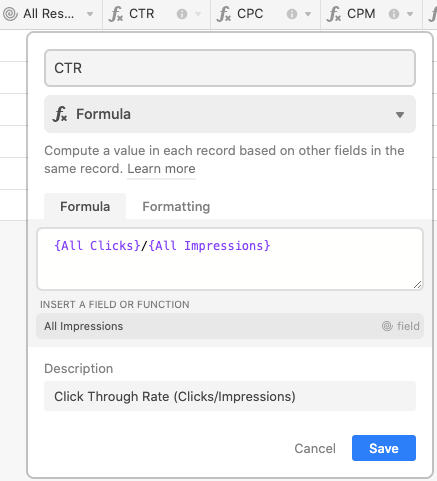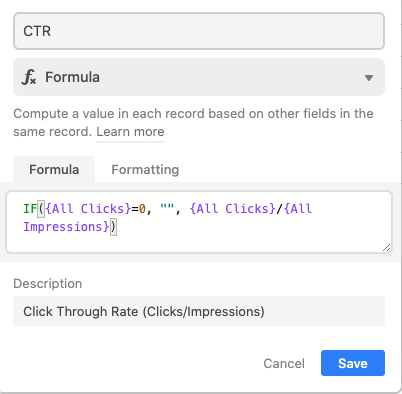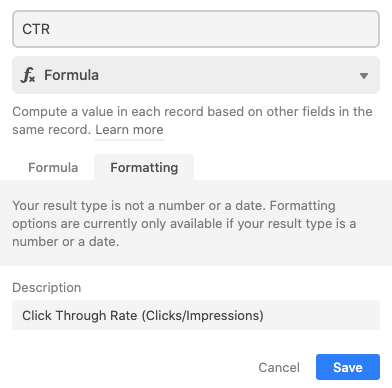Hi,
I have an issue when using the formula fields in AirTable when using an IF statement.
Context: I need the fields to be format as a percentage, or blank if there's an error/infinity.

Here is the formula that I want to use in its simplified form, and I can easily format it to return as a percentage. (FYI both fields used in this formula are rollup fields)
Sometimes, the values are 0, or blank, causing the data to reflect as such. (or infinity in some cases)

I want the data to reflect as blank. The following is the formula used, that would have worked fine in excel/sheets.

However, AirTable seems to have no idea to read this as a string or a number anymore since I cannot edit the format:

Is this intended, if so, is there a way for me to workaround this?
I am aware that it is possible to replace the value1 into 0 (instead of "" or ''), but that would cause a problem with another formula down the line.
My result end up becoming a long string of decimal that is hard to visualize eg.:
0.010466501695536614
